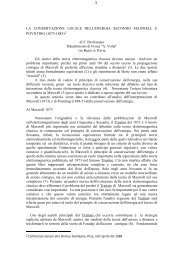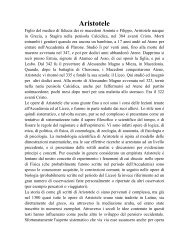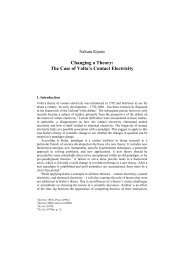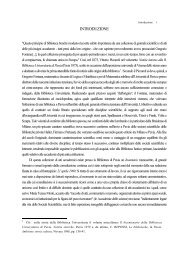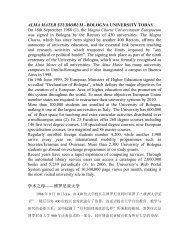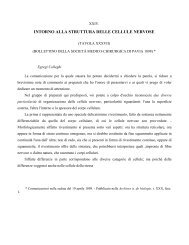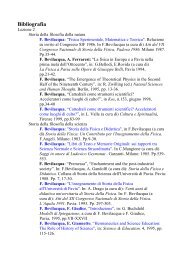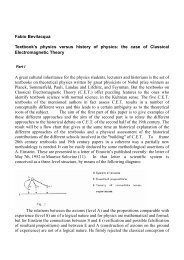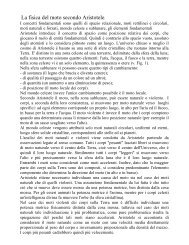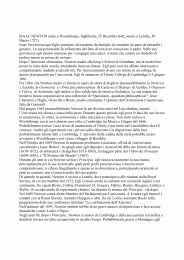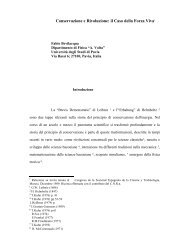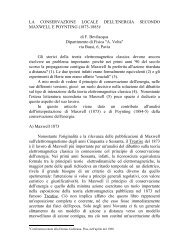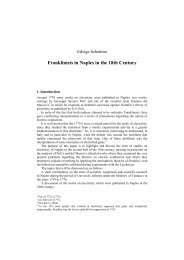Conservation and Innovation : Helmholtz's Struggle with Energy ...
Conservation and Innovation : Helmholtz's Struggle with Energy ...
Conservation and Innovation : Helmholtz's Struggle with Energy ...
You also want an ePaper? Increase the reach of your titles
YUMPU automatically turns print PDFs into web optimized ePapers that Google loves.
other seven eighths are lost in the form of heat: "the human body is a better<br />
machine than the steam engine, only its fuel is more expensive than the fuel of<br />
steam engines" 331. But despite the fact that we cannot yet prove that the work<br />
produced by living bodies is a total equivalent of the chemical forces which have<br />
been set into action, still "I think we may consider it as extremely probable that<br />
the law of the conservation of force holds good for living bodies" 332. Finally the<br />
"vital principle" is disregarded, in that, if there is complete conservation of force,<br />
the physical forces in the living body cannot be removed <strong>and</strong> again set in action<br />
at any moment by the influence of the vital principle. In fact conservation of force<br />
can exist only in those systems in which the forces in action (like all the forces of<br />
inorganic nature) have always the same intensity <strong>and</strong> direction if the<br />
circumstances under which they act are the same.<br />
Indeed Helmholtz can claim that in a few years the principle has<br />
completely modified the view of life phenomena, <strong>and</strong> that a general unified<br />
approach to physical, cosmological <strong>and</strong> physiological phenomena has been<br />
achieved.<br />
In November 1862 Helmholtz became Pro-Rector of Heidelberg<br />
University <strong>and</strong> on this occasion delivered a talk on "The Relation of Natural<br />
Sciences to Science in General" 333. After analysing the differences of the Kantian<br />
epistemological approach <strong>and</strong> that of Schelling <strong>and</strong> Hegel, Helmholtz recalls <strong>and</strong><br />
exp<strong>and</strong>s some of the ideas already expressed in the Introduction to the 1847<br />
Erhaltung. Natural science cannot be satisfied <strong>with</strong> a collection of facts: it<br />
requires the law that rules them <strong>and</strong> the corresponding causes. There is a<br />
difference between artistic <strong>and</strong> logical induction : free will implies the<br />
impossibility of reducing our psychological expressions to a rigid law. One of the<br />
deep differences between natural sciences <strong>and</strong> human sciences is exactly this :<br />
the former can attain quite general rules <strong>and</strong> laws , the latter judge on the basis<br />
of a psychological sensibility. Human sciences cannot unify observations <strong>and</strong><br />
331 Helmholtz "Organic Nature" p.<br />
332 Ibidem<br />
333 Helmholtz, Hermann. "Ueber das Verhältniss der Naturwissenschaften zur<br />
Gesammtheit der Wissenschaften". Rectoratsrede. Heidelberger Universitätsprogramm 1862.<br />
Rep. in Populäre Wissenschaftliche Vorträge 1st vol. Braunschweig: Vieweg, 1865 (<strong>and</strong><br />
following editions); translated in English as "On the relation of the physical sciences to science<br />
in general" in the Annual Report of the Smithsonian Institution for the year 1871, p.217-234;<br />
reproduced in PL 1873 (<strong>and</strong> following editions); also in R.Kahl SW.



